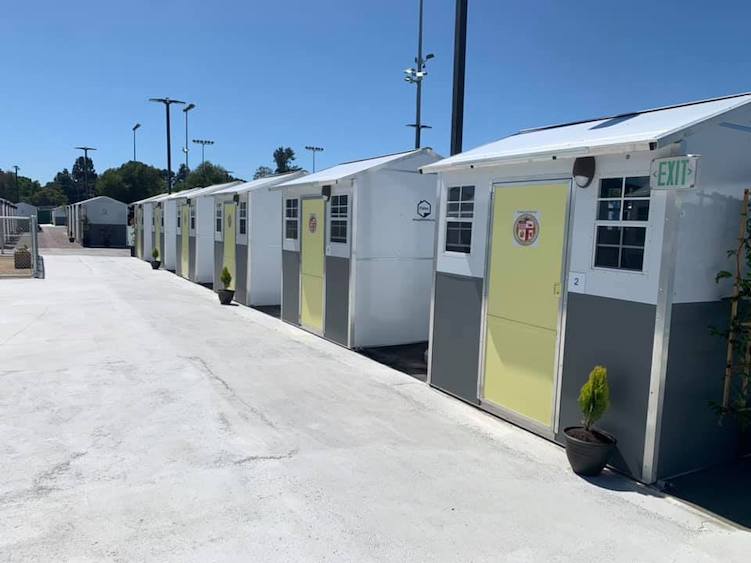Listen to this article
Listen to this article
Loading
Play
Pause
Options
0:00
-:--
1x
Playback Speed- 0.5
- 0.6
- 0.7
- 0.8
- 0.9
- 1
- 1.1
- 1.2
- 1.3
- 1.5
- 2
Audio Language
- English
- French
- German
- Italian
- Spanish
Open text
this is the nudge you need to lift up the marginalized and fight injustice. when we look at the way in which jesus dealt with injustices in his time, he didn’t go with the flow or attempt in any way to blend into society. we can learn firsthand from him how god calls us to not only be inclusive, but to stand up and speak up for those around us who are not being included. jesus welcomed the marginalized and lifted them up by inverting the circle of power, saying “the last shall be first and the first shall be last,” and also by everting the circle of power by pulling those on the outskirts in. god experienced the ultimate injustice on the cross but then he turned that injustice into the greatest blessing of all time. as we look at the story of the persistent widow (luke 18:1–8), we see the way in which jesus used this story to demonstrate how we should pray for injustices around us, but also how our heavenly father can do so much more than the unjust judge who finally just gives in to the widow’s nagging. jesus asks, “when i return, will i find that my followers have become discouraged and thrown in the towel, or do they still have faith and call out to god?”. now, we should obviously note the persistence of this widow. she was desperate for help, desperate to see change, desperate for justice to be done and as people who follow jesus, we are called to fight for freedom with this same passion and persistence. i also want to highlight how jesus is using the marginalized to make a different point, and one that i don’t think he is making by accident. a countercultural approach. at this time, the marginalized in the society were the women, so by telling this story, jesus is teaching the disciples an important lesson about prayer, but also an important lesson about the marginalized. why didn’t jesus use the dominant culture at that time to teach such an important lesson about how we should pray? why didn’t he use men to explain? jesus intentionally puts a woman—a widow, a marginalized person—at the center of the story, saying to his male disciples “learn from her,” “be like her.”. the dominant culture will always struggle to understand the marginalized perspective—but the marginalized community is more likely to understand the dominant culture because they have to. to survive in life they have to swim in the dominant culture’s waters. it is so important that those in the dominant culture, then, are aware of their privilege and invite the other voices in, not only from a fairness point of view, but in order to see the world, and the gospel through a 3d lens. we are all made in the image of god and jesus taught that, despite the culture of that time and the way in which the leaders governed and lorded over the marginalized, his kingdom would not be that way. so, if we want change, we need to be the servant of all. the good samaritan. recently i heard the story of the good samaritan and it was pointed out that the good samaritan not only helped the person who had been beaten and left for dead, but in order to help him, the good samaritan had to get down from his donkey, his place of power, in order to lift the helpless man up. i love this analogy that as people of power we need to not only give up our place of comfort but bow down to lift others up. now, let’s relate this to the marginalized in our society today and take a look at the way in which minorities are often the people who are subject to other injustices, such as human trafficking. human trafficking is the crime of using force, fraud or coercion to induce another individual to sell sex or provide a service—the main two forms of trafficking are sex trafficking and labor trafficking and an estimated 40 million people are trapped in slavery around the world today. this is a $150 billion industry and it is estimated that 1 in 4 of those trapped in slavery are children, and although trafficking can happen to anyone, those most at risk are the marginalized in society, those who are already facing hardships, those with fewer options available to them. they may have no economic option outside of their trafficking situation to support their families or they may be more vulnerable to false promises. sex and labor traffickers take advantage of economic need to lure people into situations and trap them there by promising good jobs and convincing people who have been cut off from other avenues of economic opportunity that selling sex and other services is the way to a better future. those at significant risk include people who have experienced recent migration or relocation, substance use, mental health concerns, involvement with the child welfare system and being a runaway or homeless youth. often, traffickers identify and leverage their victims’ vulnerabilities in order to create dependency. so, not only are these terrible things happening all around us, they are happening more-so to the marginalized in our community—the people that jesus is calling us to eat with, listen to, lift up and learn from. what should the church do? so, how does this affect us in the church as we are called to welcome in the stranger, the marginalized and those who are struggling with situations, including homelessness, mental illness, disabilities and racial inequity? as a church, we often open our doors and do everything we can to welcome the stranger from outside our four walls. i truly believe we have good intentions and in our minds it is clear to say, “of course, jesus died for everyone and the marginalized are welcome in our church.”. however, we often say, “oh, by the way, you do need to fit into our mold and do things our way,” leaving the marginalized—the people of color, those who speak english as a second language, the lgbtq community, our special needs brothers and sisters—feeling like they don’t fit in. eventually they, or their families, just feel that it is easier to stay at home, which sadly they often do. throughout scripture, we are commanded to love one another (john 13:34), to serve each other humbly in love (gal. 5:13), to work together as one body of christ (1 cor. 12:12), to rejoice with those who rejoice and weep with those who weep (rom. 12:15) but at no point in scripture are we commanded to only accept, love and welcome those who look, behave or think the same way that we do. as christians, we believe in our hearts that the marginalized are to be welcomed into the body of christ, but it can feel like a firehose of information and can be overwhelming to grasp. this can result in the church simply ignoring the challenge and hoping it will go away, and in reality, that is often exactly what happens. instead, let’s be like the good samaritan, who not only stopped to help but got down from his place of power and lifted the wounded man up. let’s be like jesus, who not only included the marginalized but listened to them and taught the importance of learning from them. let’s be open to those who do not look, sound, work, live, or love like us. and let’s be like that persistent widow as we cry out for justice for everyone—not as an optional upgrade to our ministries, but an essential element of everything we do. as college for officer training spiritual care director major nancy helms has said, “don’t be afraid to fail. the only failure is doing nothing.”. do good:. you’ve probably seen the red kettles and thrift stores, and while we’re rightfully well known for both…the salvation army is so much more than red kettles and thrift stores. so who are we? what do we do? where? right this way for salvation army 101. what cause best fits your personality? take our quiz and discover where you can make the biggest impact today in the fight for good. visit the justice ministries tab at sajustice.us for a wide range of resources.
Open context player
Close context player
Plays:-Audio plays count
this is the nudge you need to lift up the marginalized and fight injustice. when we look at the way in which jesus dealt with injustices in his time, he didn’t go with the flow or attempt in any way to blend into society. we can learn firsthand from him how god calls us to not only be inclusive, but to stand up and speak up for those around us who are not being included. jesus welcomed the marginalized and lifted them up by inverting the circle of power, saying “the last shall be first and the first shall be last,” and also by everting the circle of power by pulling those on the outskirts in. god experienced the ultimate injustice on the cross but then he turned that injustice into the greatest blessing of all time. as we look at the story of the persistent widow (luke 18:1–8), we see the way in which jesus used this story to demonstrate how we should pray for injustices around us, but also how our heavenly father can do so much more than the unjust judge who finally just gives in to the widow’s nagging. jesus asks, “when i return, will i find that my followers have become discouraged and thrown in the towel, or do they still have faith and call out to god?”. now, we should obviously note the persistence of this widow. she was desperate for help, desperate to see change, desperate for justice to be done and as people who follow jesus, we are called to fight for freedom with this same passion and persistence. i also want to highlight how jesus is using the marginalized to make a different point, and one that i don’t think he is making by accident. a countercultural approach. at this time, the marginalized in the society were the women, so by telling this story, jesus is teaching the disciples an important lesson about prayer, but also an important lesson about the marginalized. why didn’t jesus use the dominant culture at that time to teach such an important lesson about how we should pray? why didn’t he use men to explain? jesus intentionally puts a woman—a widow, a marginalized person—at the center of the story, saying to his male disciples “learn from her,” “be like her.”. the dominant culture will always struggle to understand the marginalized perspective—but the marginalized community is more likely to understand the dominant culture because they have to. to survive in life they have to swim in the dominant culture’s waters. it is so important that those in the dominant culture, then, are aware of their privilege and invite the other voices in, not only from a fairness point of view, but in order to see the world, and the gospel through a 3d lens. we are all made in the image of god and jesus taught that, despite the culture of that time and the way in which the leaders governed and lorded over the marginalized, his kingdom would not be that way. so, if we want change, we need to be the servant of all. the good samaritan. recently i heard the story of the good samaritan and it was pointed out that the good samaritan not only helped the person who had been beaten and left for dead, but in order to help him, the good samaritan had to get down from his donkey, his place of power, in order to lift the helpless man up. i love this analogy that as people of power we need to not only give up our place of comfort but bow down to lift others up. now, let’s relate this to the marginalized in our society today and take a look at the way in which minorities are often the people who are subject to other injustices, such as human trafficking. human trafficking is the crime of using force, fraud or coercion to induce another individual to sell sex or provide a service—the main two forms of trafficking are sex trafficking and labor trafficking and an estimated 40 million people are trapped in slavery around the world today. this is a $150 billion industry and it is estimated that 1 in 4 of those trapped in slavery are children, and although trafficking can happen to anyone, those most at risk are the marginalized in society, those who are already facing hardships, those with fewer options available to them. they may have no economic option outside of their trafficking situation to support their families or they may be more vulnerable to false promises. sex and labor traffickers take advantage of economic need to lure people into situations and trap them there by promising good jobs and convincing people who have been cut off from other avenues of economic opportunity that selling sex and other services is the way to a better future. those at significant risk include people who have experienced recent migration or relocation, substance use, mental health concerns, involvement with the child welfare system and being a runaway or homeless youth. often, traffickers identify and leverage their victims’ vulnerabilities in order to create dependency. so, not only are these terrible things happening all around us, they are happening more-so to the marginalized in our community—the people that jesus is calling us to eat with, listen to, lift up and learn from. what should the church do? so, how does this affect us in the church as we are called to welcome in the stranger, the marginalized and those who are struggling with situations, including homelessness, mental illness, disabilities and racial inequity? as a church, we often open our doors and do everything we can to welcome the stranger from outside our four walls. i truly believe we have good intentions and in our minds it is clear to say, “of course, jesus died for everyone and the marginalized are welcome in our church.”. however, we often say, “oh, by the way, you do need to fit into our mold and do things our way,” leaving the marginalized—the people of color, those who speak english as a second language, the lgbtq community, our special needs brothers and sisters—feeling like they don’t fit in. eventually they, or their families, just feel that it is easier to stay at home, which sadly they often do. throughout scripture, we are commanded to love one another (john 13:34), to serve each other humbly in love (gal. 5:13), to work together as one body of christ (1 cor. 12:12), to rejoice with those who rejoice and weep with those who weep (rom. 12:15) but at no point in scripture are we commanded to only accept, love and welcome those who look, behave or think the same way that we do. as christians, we believe in our hearts that the marginalized are to be welcomed into the body of christ, but it can feel like a firehose of information and can be overwhelming to grasp. this can result in the church simply ignoring the challenge and hoping it will go away, and in reality, that is often exactly what happens. instead, let’s be like the good samaritan, who not only stopped to help but got down from his place of power and lifted the wounded man up. let’s be like jesus, who not only included the marginalized but listened to them and taught the importance of learning from them. let’s be open to those who do not look, sound, work, live, or love like us. and let’s be like that persistent widow as we cry out for justice for everyone—not as an optional upgrade to our ministries, but an essential element of everything we do. as college for officer training spiritual care director major nancy helms has said, “don’t be afraid to fail. the only failure is doing nothing.”. do good:. you’ve probably seen the red kettles and thrift stores, and while we’re rightfully well known for both…the salvation army is so much more than red kettles and thrift stores. so who are we? what do we do? where? right this way for salvation army 101. what cause best fits your personality? take our quiz and discover where you can make the biggest impact today in the fight for good. visit the justice ministries tab at sajustice.us for a wide range of resources.
Listen to this article

















